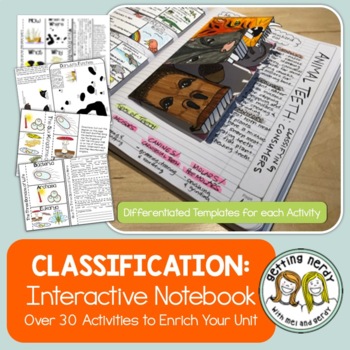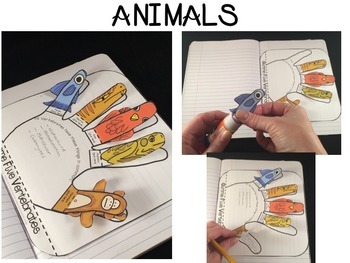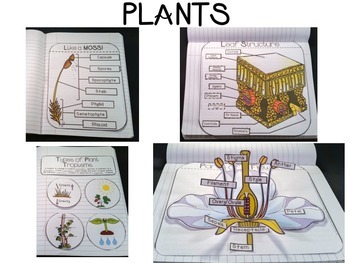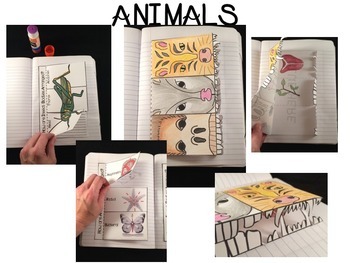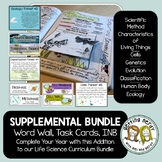Science Interactive Notebook - Classification
- Zip
What educators are saying
Also included in
- Engage your students with over 200 Interactive Notebook activities in digital google and regular format for all of your life science needs. Our interactive notebook flippers will have your kids "flipping" their way to learning all about cells, genetics, evolution and more! Use these activities as stPrice $95.95Original Price $113.60Save $17.65
- Unit Lesson Plans complete with guiding PowerPoint and student pages? ✓Word walls? ✓ Interactive Notebooks? ✓Task Cards? ✓You're ready to teach with this comprehensive bundle for teaching Classification. Engage your students with our animated PowerPoints and aligned lessons, 30+ Interactive NotebookPrice $73.95Original Price $88.35Save $14.40
- Word walls? ✓ Interactive Notebooks? ✓Task Cards? ✓You're ready to teach with this comprehensive bundle to supplement your life science curriculum. Engage your students with over 200 Interactive Notebook activities, a year-long visual word wall with roots, suffixes and prefixes AND English and SpaniPrice $169.95Original Price $218.25Save $48.30
Description
Engage your students with over 30 Interactive Notebook activities for all of your classification unit needs. Our interactive notebook flippers will have your kids "flipping" their way to learning all about the diversity of life. Disseminate these lessons as you see fit through creating a PowerPoint, in a class discussion or as small group activities. The possibilities are endless!
WHAT'S INCLUDED IN THIS LESSON:
• 135+ pages (30+ activities) of NON-EDITABLE activities in PDF format including differentiated templates in black-line and color covering the following topics:
→ Intro to classification and taxonomy
→ Levels of classification: Domain, kingdom, phylum, class, order, family, genus and species
→ Dichotomous keys and cladograms
→ Binomial nomenclature
→ Viruses
→ Bacteria
→ Protists
→ Fungi
→ Vascular and non-vascular plants
→ Vertebrate and invertebrate animals
• Directions for each activity
• Answer keys
• Absent student completed sheets
• Examples of each activity
STUDENTS WILL:
• Cut out, fill in and color the templates
• Complete each activity individually, in pairs or in groups
THIS PRODUCT IS ALSO FOUND IN OUR:
• Life Science Interactive Notebook Bundle
• Life Science Interactive Notebook Complete Bundle
CHECK OUT OUR OTHER INTERACTIVE NOTEBOOK LESSONS:
• Lab Report Templates for Interactive Notebook
• Genetics - Interactive Notebook
• Evolution - Interactive Notebook
• Human Body Systems - Interactive Notebook
• Cells Organelles & Processes Interactive Notebook Activity Pack
• Ecosystems and Ecology Interactive Notebook
• End of Year Interactive Notebook Activities
SEE HOW THIS LESSON ALIGNS WITH THE NGSS, TEKS or GSE
TERMS OF USE (TOU):
All rights reserved by GETTING NERDY®️
• This product is to be used by the original purchaser only
• Intended for classroom and personal use only
• Copying for more than one teacher, classroom, department, school, or school system is prohibited
• This product may not be distributed or displayed digitally for public view
Failure to comply is a copyright infringement and a violation of the Digital Millennium Copyright Act (DMCA). Clipart and elements found in this PDF are copyrighted and cannot be extracted and used outside of this file without permission or license.
Interactive Notebook: Classification of Living Things and Viruses © 2012 to present Getting Nerdy ®️ All Rights Reserved
www.gettingnerdyscience.com

